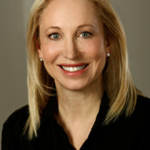
Over fifty percent of women still complain of acne. What are the underlying causes, and which preventive measures actually work? Dr. Diane Berson offers insight and solutions into the treatment of adult acne.
Tell us about your practice, and your practice philosophy: I have been in practice for almost thirty years. I have always considered myself to be a general dermatologist – focusing on medical dermatology, skin cancer and aesthetics, and treating all ages and both men and women. The health of the skin comes first, whether the patients has skin cancer, an acute rash or a chronic condition such as acne or rosacea. I have always had a special interest in the causes and treatment of acne. I also enjoy addressing cosmetic concerns so that I can make my patients look and feel their best. I have many patients who started seeing me for adolescent acne, and now I am performing cosmetic procedures on them while also doing their skin cancer checks, while their children are now seeing me for their acne. I love treating generations from the same family!
Acne, often thought as something only adolescents must face, often carries well into adulthood. Can you explain the prevalence of acne in adults, and why this occurs? Acne is present in many adults; over fifty percent of women still complain of regular breakouts. Many women tend to have a chronic acne, even if the breakouts are mild and mostly cyclical (such as premenstrually). Though stress can play a role, hormonal fluctuations are probably the main culprit: menstrual cycles, going on or especially discontinuing oral contraceptives, becoming pregnant or postpartum, or experiencing perimenopause or menopause). Each of these changes can precipitate flares in those who are acne prone. Hormonal breakouts can be mild, and often just appear on the chin or lower cheeks, but can be upsetting to the patient. Diet may also play a role; recently dairy and some carbohydrates have been implicated.
Are those who were more prone to acne as adolescents more likely to experience acne as an adult, or is this not true? And why? Yes, those who had acne as teens may be more likely to develop flares, especially with triggers such as hormonal fluctuations and stress. There are some patients, however, who develop acne for the first time as adults.
What is the root cause of acne scarring? Is it the result of a specific type of acne? How can one treat it? The lesions which tend to be more inflamed, such as papules (pink pimples), pustules, and cysts (deeper, often painful lesions), and acne which has been active for long durations of time, are more likely to lead to pigmentation and even scarring. picking or squeezing pimples may also lead to scarring, and genetics can also play a role. Some scars are thick, raised and pink (hypertrophic) while others heal with shallow depressions (atrophic). Treatments can include topical retinoids, peels, lasers (such as pulsed dye lasers and fraxel), micro needling and fillers , depending on the type of scar. Treatment options can be discussed with, and subsequently performed by, your dermatologist.
Wrinkles and zits at the same time just doesn’t seem fair. What treatments are available for adults facing these skin conditions? Often adults with acne also have early signs of sun damage and premature aging of the skin. A good skin care routine incorporating antioxidants, anti-inflammatories, retinoids as well as sun protection can improve the health and appearance of the skin, and procedures such as peels and laser can help improve both the acne as well as the signs of premature aging, including tone, texture, pores, pigmentation and fine lines. A dermatologist can recommend the appropriate skin care options, makeup, and appropriate in-office procedures to improve the skin’s health and appearance.
Is there a specific regimen you recommend to your patients to decrease the risk of acne, or late onset acne? Is it the cause of a hormonal imbalance, related to diet or overall wellness? Incorporating skin care (antioxidants, retinoids etc), prescription treatments, peels or Clear and Brilliant (light fraxel treatments) are helpful to maintain clear, acne free skin. Drinking plenty of water and eating a healthy diet with fruits, vegetables, healthy oils, and lean protein can also improve skin health. And for women with a hormonal influence, I may prescribe spironolactone (which blocks the effects of androgens) or the oral contraceptive pill, which also help prevent acne flares.
 Diane S. Berson, MD, is an Associate Professor of Dermatology at Weill Medical College of Cornell University and an Assistant Attending Dermatologist at the New York-Presbyterian Hospital. She has a private dermatology practice in NYC, and volunteers at the NY Presbyterian Hospital Department of Dermatology where she teaches medical students and residents. Dr. Berson received her undergraduate degree from Cornell University, College of Arts and Science where she was elected to Phi Beta Kappa. She pursued her medical education at New York University School of Medicine. This was followed by an internship in internal medicine at Bellevue Hospital, NYU Medical Center, and a residency in dermatology at State University of New York Health Science Center at Brooklyn, where she served as Chief resident during her final year of training. She was certified by the American Board of Dermatology in 1988.
Diane S. Berson, MD, is an Associate Professor of Dermatology at Weill Medical College of Cornell University and an Assistant Attending Dermatologist at the New York-Presbyterian Hospital. She has a private dermatology practice in NYC, and volunteers at the NY Presbyterian Hospital Department of Dermatology where she teaches medical students and residents. Dr. Berson received her undergraduate degree from Cornell University, College of Arts and Science where she was elected to Phi Beta Kappa. She pursued her medical education at New York University School of Medicine. This was followed by an internship in internal medicine at Bellevue Hospital, NYU Medical Center, and a residency in dermatology at State University of New York Health Science Center at Brooklyn, where she served as Chief resident during her final year of training. She was certified by the American Board of Dermatology in 1988.
Dr. Berson’s practice focuses on medical, surgical and cosmetic dermatology and cutaneous oncology. She also has an interest in the treatment of acne, particularly in adults. Dr. Berson has conducted clinical trials and published articles concerning the treatment of acne and rosacea and other dermatological topics. She has been quoted in the Wall Street Journal and the New York Times, and many magazines including Allure, In Style, Town and Country, Health, Real Simple, Fitnes, Self, Good Housekeeping, Glamour, W and More. She has also been interviewed often in the media, including NBC’s Today Show, The CBS Early Show, ABCWorld News Tonight, CNN Headline News, MSNBC, Fox News and local news networks. She lectures regularly at national dermatology conferences. Dr. Berson is on the editorial boards of Practical Dermatology, Journal of Drugs in Dermatology andDermatologic Surgery.


